The 2016 edition of the world’s biggest bike race is shaping up to be another entertaining affair, with the world’s best Grand Tour riders in attendance.
Can Chris Froome (Sky) win a third Tour de France? Can Nairo Quintana (Movistar) finally attain Tour glory? Has Alberto Contador (Tinkoff) got another Grand Tour victory in his legs?
In this preview we consider the course, the riders and the must-watch stages of the 2016 Tour de France.
THIS YEAR’S RACE STARTS ON FRENCH SOIL BUT VISITS THREE OTHER COUNTRIES
In the past six editions of the Tour de France, five have started away from the French mainland. But in 2016, the Grand Depart returns to France proper and to the north-western region of Normandy more specifically.
Stage 1 will begin in the shadows of Mont-Saint-Michel as the riders kickstart three days in the Manche department. The Tour then heads south towards the Pyrenees — and briefly into Spain and Andorra — before swinging north east towards the Alps and a visit to Switzerland.
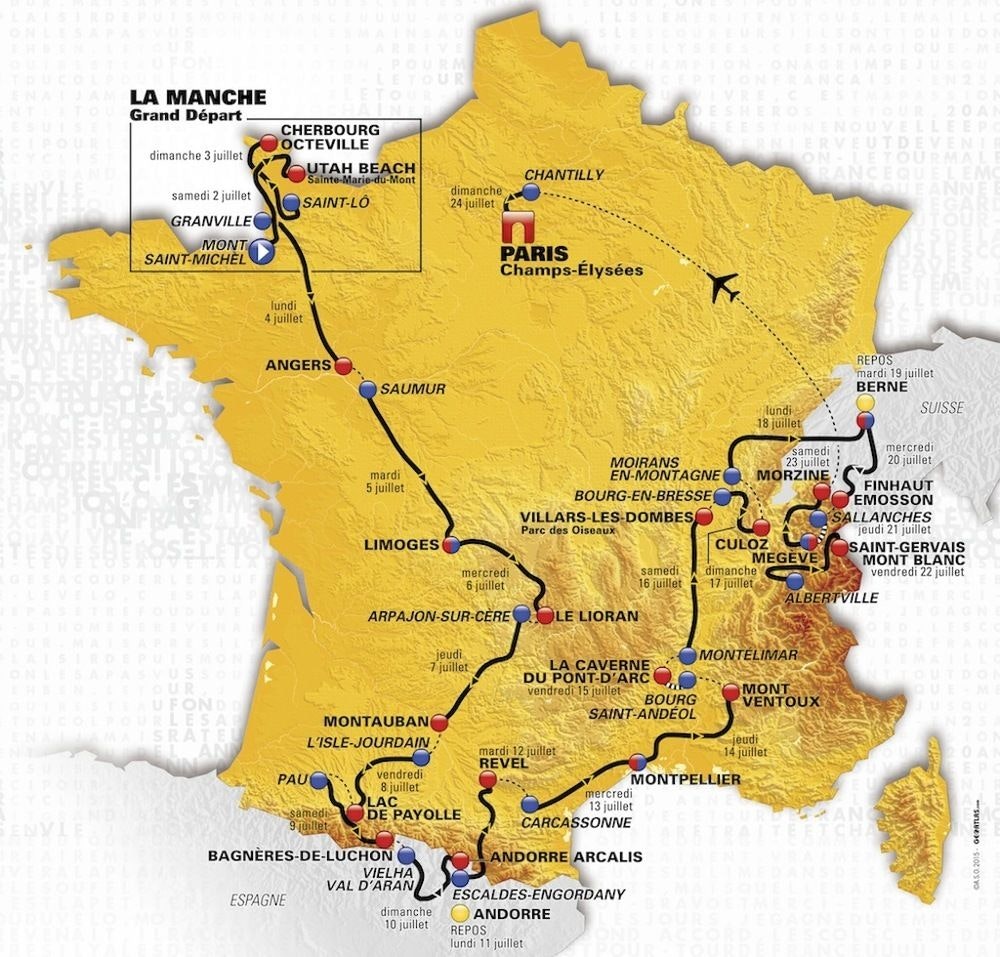
After the race’s penultimate day in the Alps, the Tour caravan will make the long overnight transfer to Paris for the traditional Champs-Elysees finish.
Find out how the race works with our Ultimate Guide to the tour de France
THERE ARE FOUR SUMMIT FINISHES AND TWO INDIVIDUAL TIME TRIALS TO SHAPE THE GENERAL CLASSIFICATION
As is ever the case with Grand Tours, the biggest challenges of the 2016 Tour de France come in the second half of the race. But the first week and half, while lacking the cobbled stages of recent editions, will deliver its own share of challenges.
Stage 8 is a big day through the Pyrenees, featuring four big climbs, while stage 9 (see below) includes the race’s first uphill finish: a 10km ascent into Andorra that will give the first indications of how the GC battle might unfold.
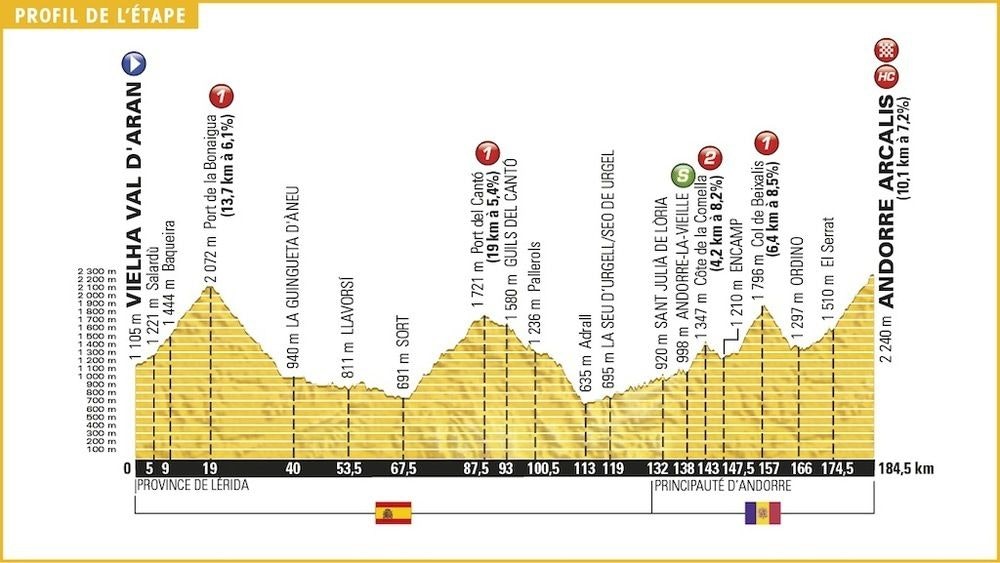
The remaining three summit finishes come in the second half of the race. The Tour returns to the summit of the legendary Mont Ventoux on stage 12, stage 17 features two tough climbs in Switzerland to conclude the stage, and stage 19 is the race’s final uphill finish with a 10km ascent to close out the day.
The race’s individual time trials fall on stages 13 and stage 18, and both are likely to suit GC contenders — i.e. time trialists who climb well — rather than the pure time trial specialists.
The 37.5km stage 13 ITT starts with roughly 7km of climbing and finishes with an ascent of roughly 3km of climbing. And the stage 18 time trial (see below) is a challenging almost-all-uphill effort with a short downhill before the finish.
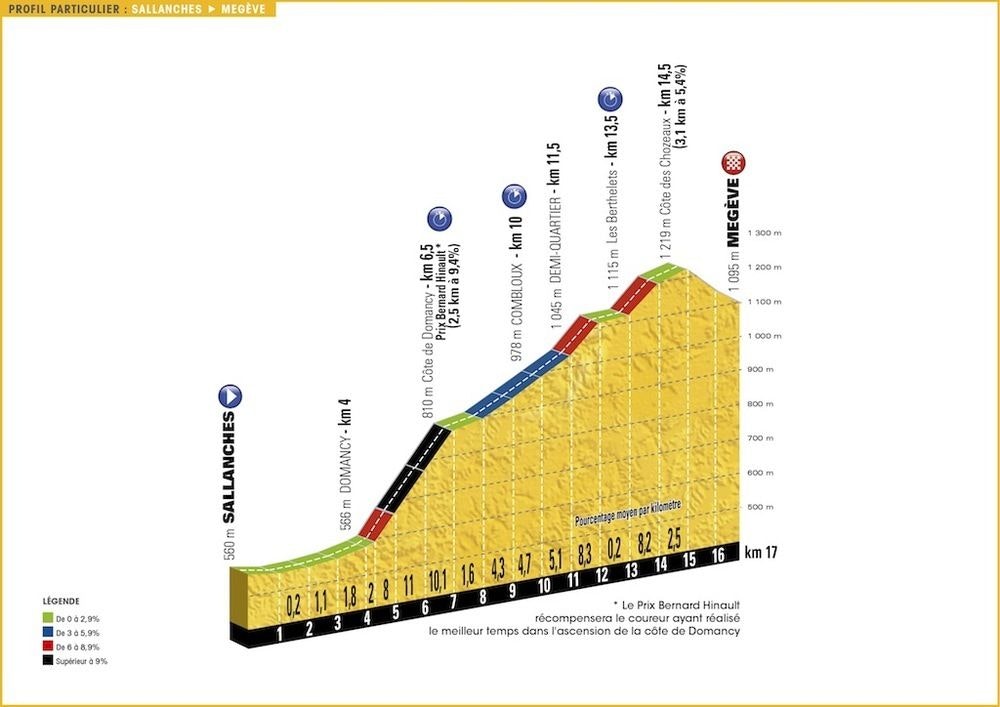
THERE ARE PERHAPS THREE MAIN CONTENDERS FOR THE RACE OVERALL
A couple of years ago it was trendy to talk about Alberto Contador, Chris Froome, Nairo Quintana and Vincenzo Nibali as the ‘Big Four’ GC contenders. We don’t hear the term ‘Big Four’ as much anymore, but it’s worth noting that all four will be in attendance at this year’s Tour de France.
Chris Froome (Sky) is the defending champion and a strong favourite to win his third Tour de France. Doing so would make him one of just eight riders to have won the world’s biggest race on three or more occasions.
Froome was dominant at last year’s race, taking the lead on stage 7 and never relinquishing it. His aggressive victory on stage 10, on the summit finish to La-Pierre-Saint-Martin, was a defining moment and one that his rivals were never able to come back from. Nairo Quintana fought back in the final couple stages but in the end Froome still won the Tour by more than a minute.
Froome will go into this year’s Tour as the rider to beat, not just because of his win last year but because of his lead-up to this year’s race. The Kenyan-born Brit has timed his run to perfection, winning the Criterium du Dauphine — one of the key lead-up races — earlier this month.
It’s worth noting that Froome had won the Dauphine twice before this year. Both times he went on to win the Tour de France a month later.
Froome will be without the support of friend and superdomestique Richie Porte (BMC) this time around (more on him below) but with the likes of Wout Poels, Mikel Landa, Sergio Henao, Mikel Nieve, and Geraint Thomas, Froome still has one of the strongest climbing teams in the race.
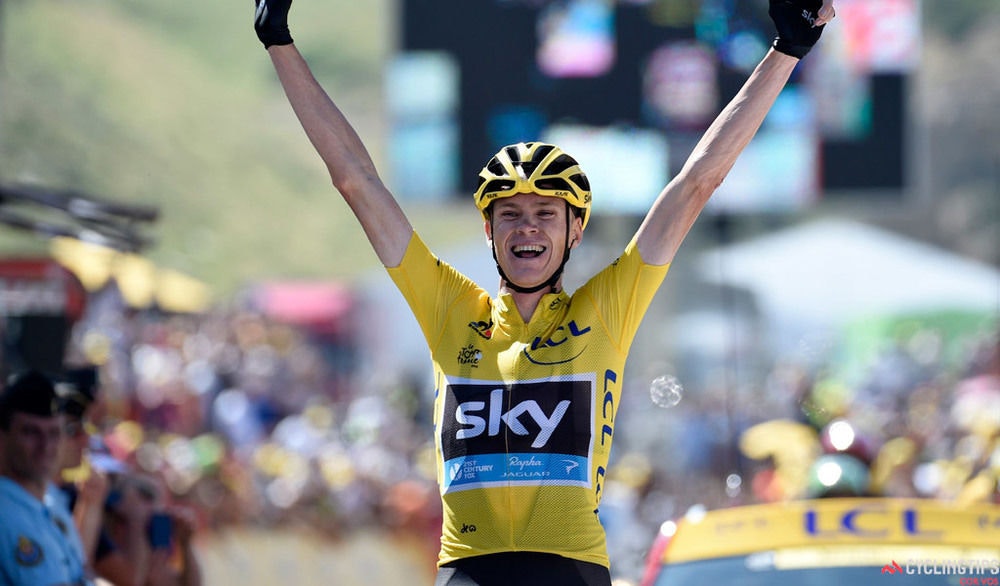
If there’s one rider who can foil Froome’s plans of a third Tour victory it’s Nairo Quintana (Movistar). The 26-year-old has been on the cusp of Tour de France success several times, finishing second to Froome in 2013 and 2015. This year could be the year that the Colombian takes that next step up.
Quintana’s lead-up to the Tour has been sublime with overall victories at the Volta a Catalunya (March), Tour de Romandie (May) and Route du Sud (June).
Like Froome, Quintana will enjoy the support of an imposing squad in the mountains, not least Alejandro Valverde who was third in last year’s Tour, third at the recent Giro d’Italia and who has dedicated himself fully to working for Quintana.
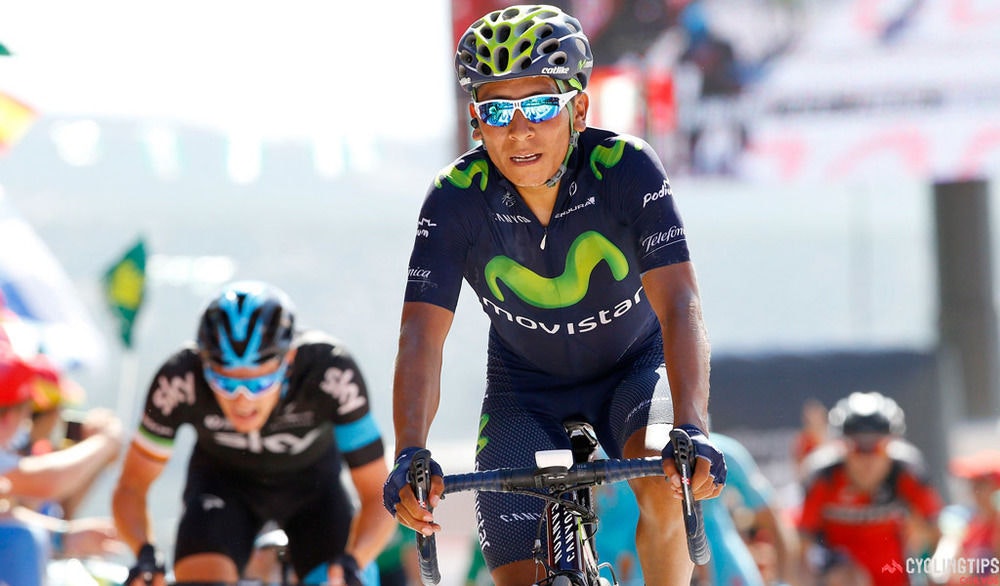
The third of the five-star favourites is Alberto Contador (Tinkoff), a man who already has two Tour de France titles to his name. While the Spaniard is probably a few years past his scintillating best, few riders in the sport are as dogged and determined as Contador (see his efforts at this year’s Paris-Nice for one of many examples.)
The 33-year-old sat out the Spanish national championships with a cold last weekend but if team reports are to believed, Contador will be back to health come Saturday. Interestingly, Contador himself has played down his chances of winning the race, suggesting Froome and Quintana are on another level. But with a decent team behind him — including Rafal Majka and Roman Kreuziger — and a penchant for riding aggressively and impulsively, it’s hard to see Contador not being in the thick of the action when it matters.
THERE ARE SEVERAL MORE BIG NAMES THAT COULD CHALLENGE FOR THE PODIUM
Vincenzo Nibali (Astana) is on the startlist for this year’s Tour de France but he won’t be among the favourites to win. Instead, the Sicilian, who won a thrilling Giro d’Italia back in May, will apparently start the race in a support role for his young teammate Fabio Aru.
Aru is a proven winner at Grand Tour level — he won the Vuelta a Espana last year and has a total of five Grand Tour stage wins in his palmares. But, perhaps surprisingly, this will be the first time he’s ridden the Tour de France.
Aru’s had something of a quiet start to the season but his form’s trending in the right direction, courtesy of a terrific stage win at the Criterium du Dauphine after a late attack. Like Froome, Contador and Quintana, Aru will benefit from having a strong team around him, with the likes of Tanel Kangert, Diego Rosa, Paolo Tiralongo and of course Nibali providing invaluable support.
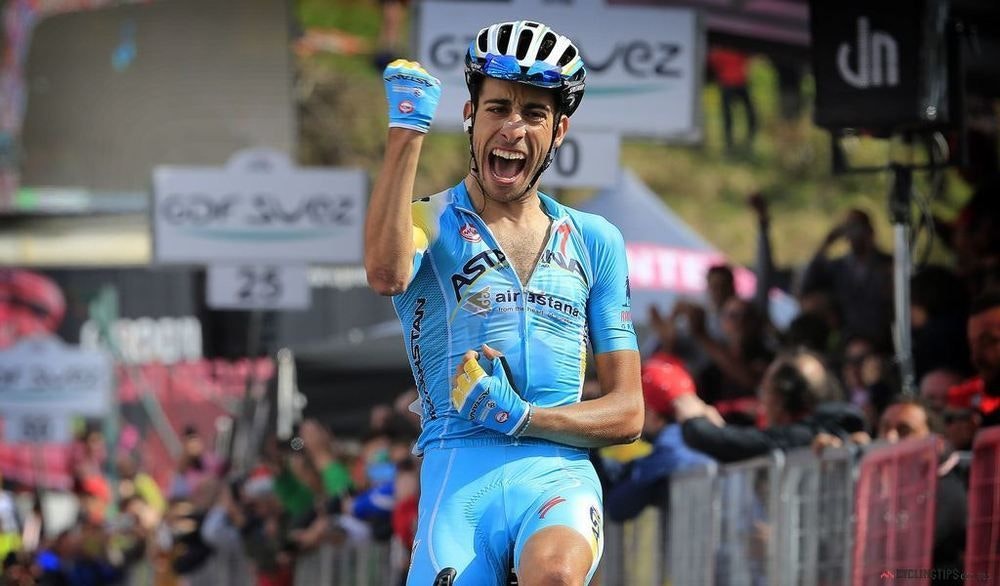
Dan Martin is in his first season at Etixx-QuickStep and the move seems to have done him good. He’s already have a handful of victories in the early part of the season and had a terrific race at the Dauphine, with four top-four finishes and third overall. Whether the Irishman can translate that result into the top-ten Tour finish he’s after remains to be seen, but there’s little doubt Martin is motivated and on form.
But perhaps the most interesting story among the GC contenders is that of Richie Porte and Tejay van Garderen. The pair will start the Tour as joint leaders of the BMC squad, but how long that will be the case is uncertain.
On paper, Porte is the better chance of challenging for the race overall — he was the only rider able to match it with Chris Froome on the stage 5 summit finish at the Dauphine, and he finished that race fourth overall vs Van Garderen’s sixth at the Tour de Suisse. Van Garderen did win a stage at the Tour de Suisse, admittedly, but Porte’s opposition at the Dauphine was considerably stronger.
Both Porte and Van Garderen are known for having the odd off day at Grand Tours, often derailing an otherwise promising campaign. For BMC to have a rider on the podium come Paris, Porte and/or Van Garderen will have to avoid illness, injury and bad legs, and ride consistently throughout.
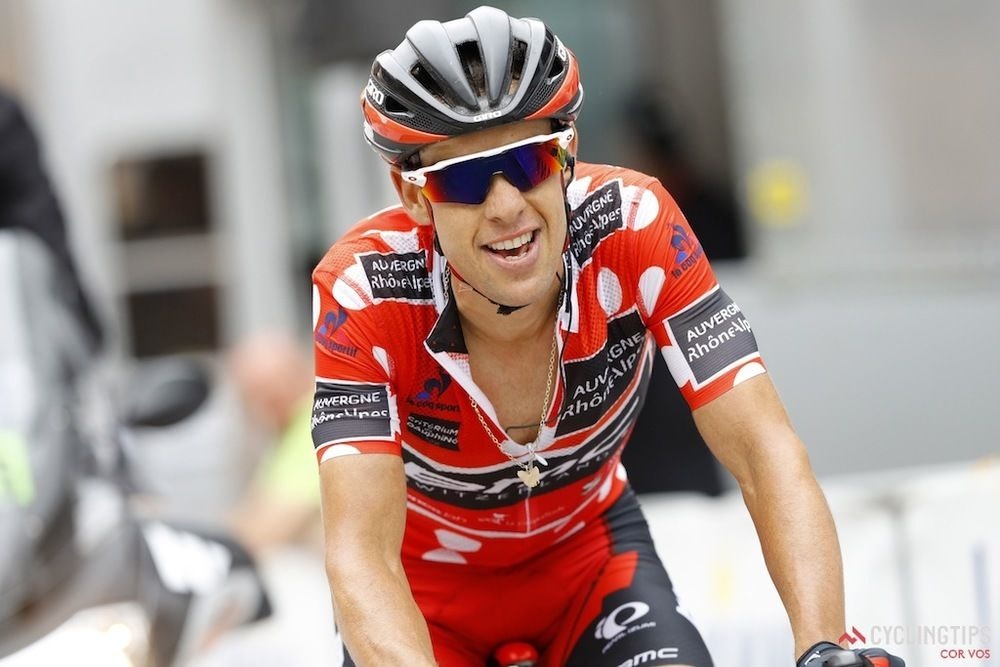
For other contenders for the top 10 overall, look to French Cannondale recruit Pierre Rolland, the ever consistent Joaquim Rodriguez (Katusha) (or his teammate Ilnur Zakarin), 2015 stage winners Romain Bardet (Ag2r-La Mondiale) and Thibaut Pinot (FDJ), Matthias Frank (IAM) and possibly even Tour of California winner and Grand Tour debutant Julian Alaphillipe (Etixx-QuickStep), who was an impressive sixth at the Dauphine.
THERE ARE EIGHT STAGES THAT ARE LIKELY TO END IN A BUNCH SPRINT
A look at the Tour de France start list reveals a veritable who’s who of the sprinting world: Marcel Kittel (Etixx-QuickStep), Andre Greipel (Lotto Soudal), Mark Cavendish (Dimension Data), Alexander Kristoff (Katusha), Peter Sagan (Tinkoff), Bryan Coquard (Direct Energie), Michael Matthews (Orica-GreenEdge) … and so on. With such a deep field, each of the sprint stages is sure to be hotly contested and well well worth watching.
Marcel Kittel (Etixx-QuickStep) has the most wins this year among the top sprinters (10, including two at the Giro) and is arguably in career-best form. But victories will be far from assured for the 28-year-old.
While Kittel got the better of Andre Greipel and others in the Giro’s first two sprint stages, just last weekend Kittel was convincingly beaten at the German national championships by Andre Greipel. Greipel has again timed his run to the Tour well and will be looking to add to the four stages he won in last year’s race.
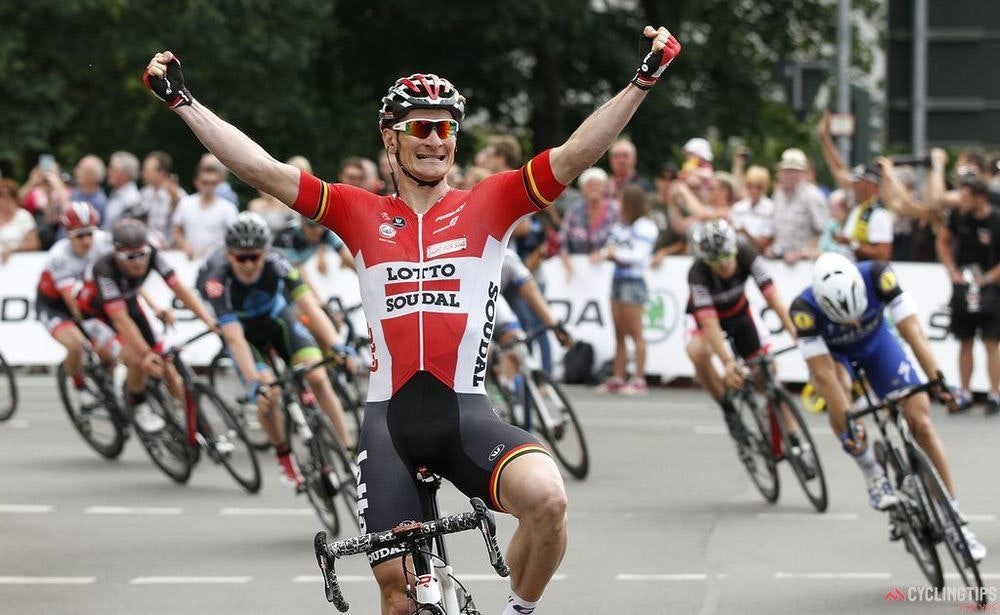
Mark Cavendish has won four times this year but is no longer the strongest sprinter in the world. The Manxman had to settle for second at the British nationals over the weekend after being beaten by Adam Blythe (Tinkoff) and could struggle to get around Kittel and Greipel at the Tour.
The likes of Kristoff, Sagan, Matthews and Coquard can all be expected to be around the mark in the flat sprint finishes. In the harder, uphill sprint finishes — such as stage 2 — look to Matthews and Sagan in particular, and possibly even John Degenkolb (Giant-Alpecin), whose recovery from an early season training crash has been long and painful.
The battle for the green points jersey will be worth keeping an eye on again this year. Peter Sagan is gunning for a fifth straight win and, given his versatility, he’ll be hard to beat. But will Michael Matthews challenge for the jersey this time around?
Find out how the green jersey is won and how the points system works
THERE ARE SEVEN MUST-WATCH STAGES OF THIS YEAR’S TOUR
While every stage of the Tour de France has a story to tell, it’s often not possible to sit down and watch every single stage (particularly for those watching late at night in the Southern Hemisphere). So, if your viewing opportunities are limited and you want to maximise your enjoyment, here are the stages we think you should watch.
Stage 9: Starting in Spain, this stage climbs into the mountainous principality of Andorra, racking up nearly 5,000m of climbing and ending with a 10km climb at roughly 7%. The first chance for the GC contenders to shine?
Stage 12: Two words: Mont Ventoux. The ‘Giant of Provence’ is one of the most famous climbs in the world of cycling and returns as a summit finish. Chris Froome won here in dominant fashion in 2013, en route to winning the race overall. Will history repeat itself?
Stage 15: A big day in the Alps with six categorised ascents, and more than 4,000m of climbing.
Stage 17: Starting in the Swiss capital of Bern and ending in Finhaut-Emosson, this stage features a 10km climb to the finish line, likely helping to shape the general classification.
Stage 18: The second and final individual time trial is a mostly uphill affair. Time trials don’t tend to make for great viewing but the nature of the course and the scenery make this one worth watching.
Stage 19: In excess of 4,000m of climbing, a 10km climb to finish the day, and the penultimate chance for GC riders to improve their overall position.
Stage 20: Four big climbs (see below), a technical descent to the finish in Morzine and the final test for the overall favourites.
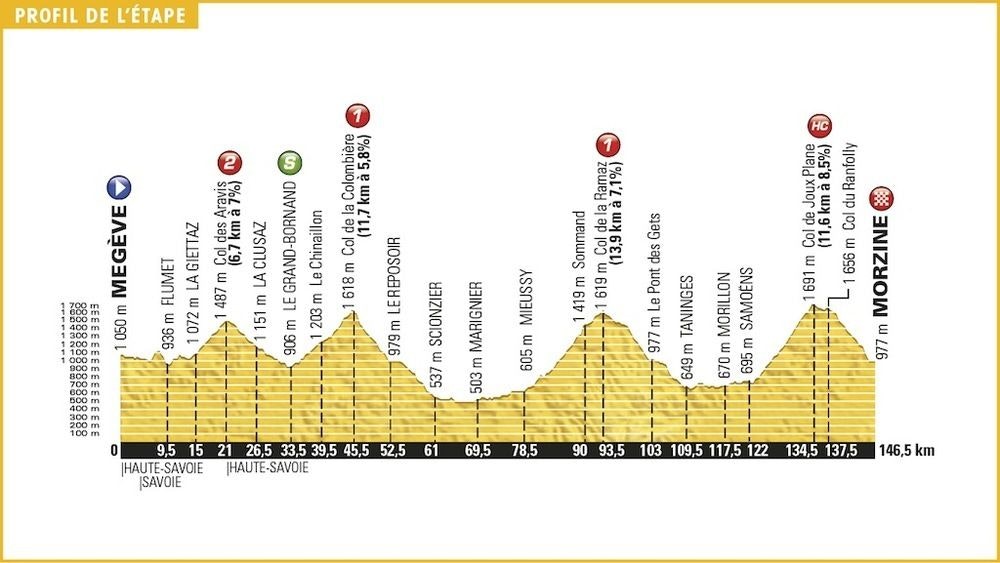
Viewers in Australia can catch every stage of the Tour de France live on SBS TV or on Eurosport via Foxtel channel 511.
Fans in the U.S. can do likewise via NBC Sports, Eurosport is a solid bet in Europe, and ITV has broadcast rights in the UK.
You can also follow the action on Twitter using the hashtag #TDF. And of course, stay posted to CyclingTips for daily coverage.
Get a history lesson on the Tour de France
THIS YEAR’S PELOTON, BY THE NUMBERS
Here are some of the stats that stand out about this year’s Tour:
There are 35 nations on the start list
Team managers may modify their rosters up until the eve of stage 1, but the provisional start list now gives a pretty clear picture of the field. 198 riders will represent 35 nations. France has the highest number of starters (38), ahead of Spain (18), and The Netherlands, with 15. Belgium has 14, followed by Italy (13), Germany (12), and Switzerland and Australia (9).
Matteo Tosatto is the oldest rider in the race at 42 years old
Matteo Tosatto (Tinkoff) starts his 34th Grand Tour on Saturday (13 Giri, 11 Tours, and 9 Vueltas to date). The oldest rider in the race is followed by a few 39-year olds: Greg Henderson (Lotto Soudal), Haimar Zubeldia (Trek-Segafredo), Angel Vicioso (Katusha) and Paolo Tiralongo (Astana). Aged 38, Paris-Roubaix winner Mathew Hayman (Orica-BikeExchange) will be part of the Tour de France peloton for the first time.
The youngest rider in the bunch is Norwegian Sondre Holst Enger (IAM Cycling), 22.
Hansen shoots for 15 straight, Chavanel climbs to 16 Tours
Adam Hansen (Lotto Soudal) will try to complete his 15th Grand Tour in a row. He hasn’t missed or abandoned any since the 2011 Vuelta a España. Meanwhile, starting the Tour de France for the 16th time, Sylvain Chavanel (Direct Energie) is getting close to the record of 17 held by George Hincapie and Stuart O’Grady. It’s Haimar Zubeldia’s 15th Tour start, Thomas Voeckler’s 14th, and Matteo Tosatto’s 12th.
There will be 33 Tour debuts
Some 33 cyclists will take part in the Tour de France for the first time, including AG2R-La Mondiale teammates Domenico Pozzovivo and Alexis Gougeard, Amgen Tour of California winner Julian Alaphilippe (Etixx-QuickStep), and Vuelta a España overall winner Fabio Aru (Astana). Nine of those 33 riders have never participated in any Grand Tour.
This article was originally published on cyclingtips.com




